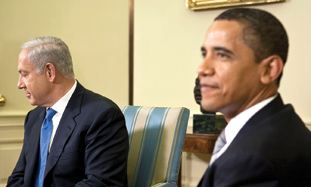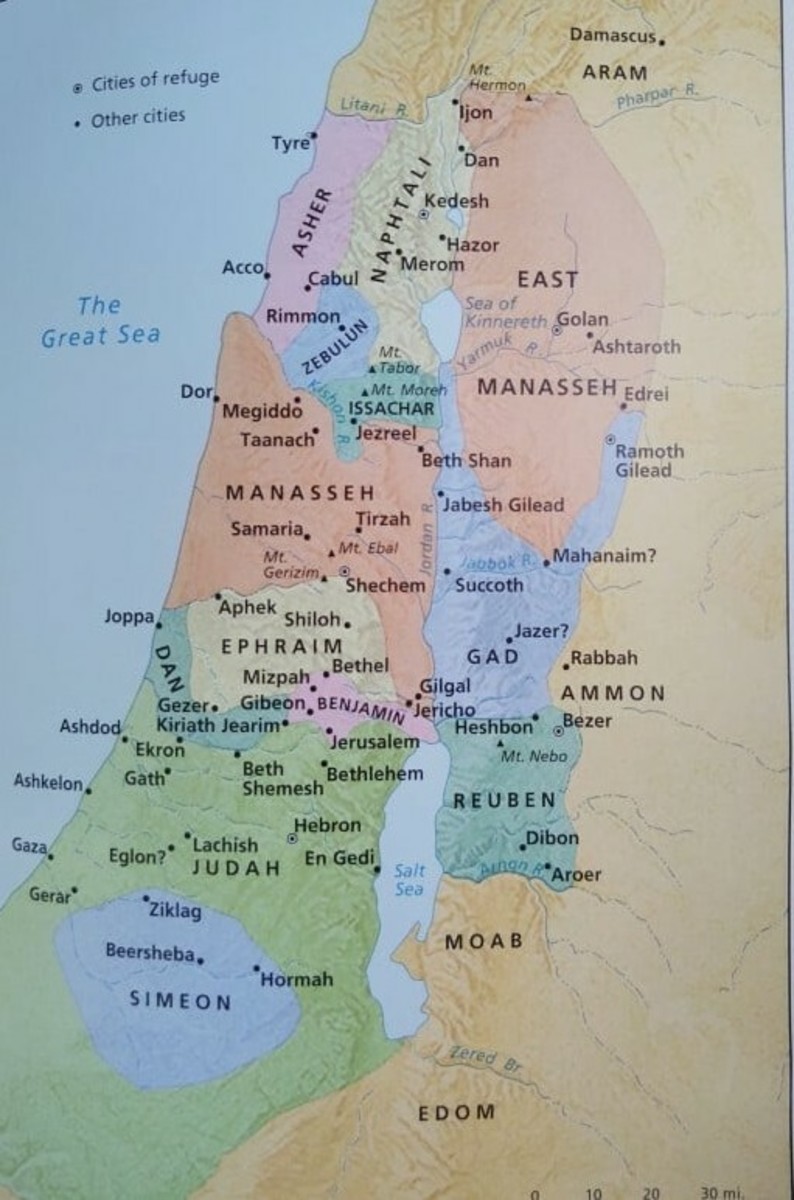Israel, Oh Israel - Why Must Thou Help Iran?

Where The Hell Is AIPAC?
The main function of AIPAC (American Israel Public Affairs Committee) is to ensure that a consistent, functional, effective, working relationship exist, at all times - between the United States and Israel. The group is basically a lobby organization who met approximately two weeks ago but unfortunately for the lobby, their conference came just after the largest embarrassment - of any magnitude, of an American Head of State in quite a while. The embarrassment was the untimely announcement on March 9 of the construction of new housing units in East Jerusalem – just as Vice President Joe Biden landed to jump-start indirect peace talks between the Israelis and Palestinians. The American Vice President was barely off the plane when the announcement was made by whom other than the Israeli Prime Minister himself – Benjamin Netanyahu. Later presidential advisor David Axelrod announced on ABC’s This Week that "What happened there was an affront. It was an insult." His comments suggested that Israel need to be dealt with immediately!
Building new settlements in Jerusalem is nothing new for Israel. However it was just what General David Petraeus wanted to prevent when he and a team of senior military officers from the U.S. Central Command (responsible for overseeing American security interests in the Middle East), arrived at the Pentagon on January 16 to brief Joint Chiefs of Staff Chairman Adm. Michael Mullen on the Israeli-Palestinian conflict. Gen. David Petraeus wanted to express his growing concerns at the lack of progress in resolving the Israeli/Palestinian issue. His major concern was the growing perception among Arab leaders that the U.S. was incapable of standing up to Israel, that CENTCOM's mostly Arab constituency was losing faith in American promises; that Israeli intransigence on the Israeli-Palestinian conflict was jeopardizing U.S. standing in the region; and that Mitchell himself was, according to unnamed military sources…."too old”, “too slow” ... “too out of touch” and “too late" to do anything about it.
This was the first time a CENTCOM commander had ever expressed himself on a political matter. His concerns however were a result of a 2009 tour of the region where, on Petraeus’s instructions, each member of the team was allowed to speak directly with senior Arab leaders. According to the team “everywhere they went, the message was the same; “America was viewed as weak against Israel and as a result its military and political might in the region was eroding. Petraeus most serious concern however, was that the Israeli problem, and America’s perceived lack of influence put U.S. troops deployed in Iraq, Afghanistan, and elsewhere in the Middle East in greater danger and powerless if Israel decided to go it alone against Iran, as it has done often in the past.
The perceived far right-wing government of Israeli Prime Minister Benjamin Netanyahu does little to calm these concerns and more to exacerbate them – perhaps giving Iran the edge of influence. Israel is certainly within its rights to develop land they feel belong to them however the choice between expanding settlements in the West Bank or achieving a global consensus on the need to sanction and coerce Iran into giving up its nuclear enrichment program must be taken into consideration. Netanyahu appear to be so focused on settlement projects that he cannot see how his action negatively affects the broader Israeli and US objectives, thereby creating a policy gap between the US and Israel. These serious policy differences does more to help Iran in a way that it reduces Ahmadinejad sense of urgency to participate in nuclear talks.
However, despite the differences, The Times of London reports that US President Obama severely chastised Prime Minister Netanyahu during his visit to Washington earlier this week, mainly for not contacting him and informing him of the decision to build settlements per their previous agreement not to build – and by embarrassing Vice President Joe Biden – and for diluting American influence – and making it harder for US and allied troops in the region. As a result of Netanyahu’s ‘go-it-alone decision’, the Palestinian Authorities, including President Mahmoud Abbas, refused to restart peace negotiations as long as Netanyahu refuses to commit to a freeze of Israeli colonization efforts – per agreement. This was highly unfortunate because it was reported that Abbas was prepared to set aside his objections and begin proximity talks. Predictably, the Palestinians packed their bags and pulled out of the talks – sending peace efforts back to ground zero.
Perhaps Netanyahu’s unfortunate decision was a miscalculation of the US plans to move bunker busting bombs to the Indian Ocean island of Diego Garcia. Perhaps this decision set off a flurry of speculations that the U.S. was getting ready to move against Iran which gave Israel free reign to begin building settlements. If they had been correct in their assessment the timing would have been perfect as the focus would have been on Iran. After all, in their minds, Iran is the problem – not Israel.
However, according to unnamed US military officials, the U.S. may well have been sequestering the bunker busters thereby denying them to Israel. Prime Minister Netanyu’s trip to Washington was pre-planed which was in part to ask for additional materials, including the bunker busters to be used as part of his call for “crippling” sanctions against Iran if they did not dismantle their civilian nuclear enrichment program. According to news sources the call for sanctions was immediately rejected by the Russian Federation (and perhaps indirectly by China). Unfortunately, the sanctions resolution prepared by the U.S. on behalf of the United Nations was quickly altered to meet Russian and Chinese objections. Iranian President Mahmoud Ahmadinejad, in the face of US/Israeli tense relations quickly responded to the news, saying “sanctions have no ability to either harm or influence Iran”. The tense climate between the US and Israel will certainly influence China and Russia’s decision whether to support any new U.S\Israeli backed sanctions against Iran. Iran knows this and is taking advantage of the rare opportunity when the spotlight is not on them. Iran will most likely gather its few allies in the region and further instigate the US/Israeli conflict thereby buying critical time to further its influence and continue their so called civilian nuclear enrichment program – just as it did during the Iraqi war.
Perhaps Israel is frustrated with what they perceive to be the US’s “slow to action” policy against Iran and the Palestinians’. Perhaps Israel sees itself as no longer having to wait on US approval to defend her solvency. With its military might and protection by the US, no matter what it does perhaps Israel sees itself as a grown child no longer dependent on the blessings of the parent who birthed it. Perhaps Israel sees itself as the US saw itself after independence from the British – as its very own superpower.
Nevertheless, Israeli Prime Minister Benjamin Netanyahu need to understand that Israel has too many enemies living next door and despite America’s support they can not fight them all at the same time while expecting to live in peace. Therefore, any go-it-alone actions which may blind side US efforts will further strain US/Israeli relations.
The bottom line is that Israel and the U.S. have poor relations for the moment, and the rest of the world is aware of it, making it difficult for the two of them to be taken seriously in pressuring the UN Security Council. The single benefactor of this strained relationship will be Iran.
While all this is going on where the hell is AIPAC and what is their position on the strained relationship between the US and Israel? Besides influencing American Congressional members, raising funds, and denying the obvious - what are they going to do about Netanyahu, and why are they allowing him to help Iran?
Hmmmm!








